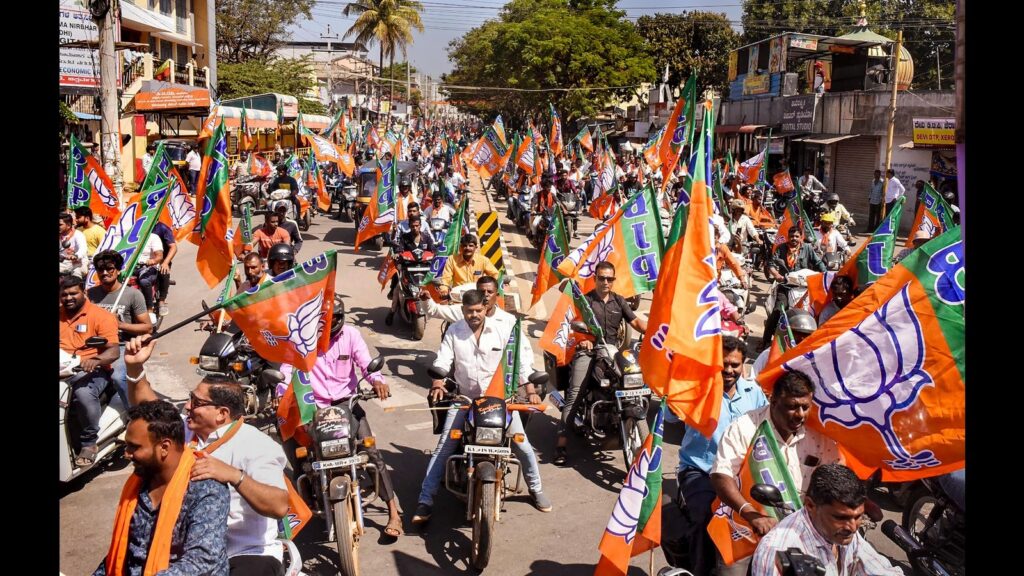The ongoing drama over the Bharatiya Janata Party’s (BJP) candidate list for the forthcoming assembly election in Karnataka should not surprise anyone. Disappointment, dissent, and defection by aspirants who don’t find their names on the list isn’t unique to the state, although it does take it to a different level altogether, and doesn’t fit the image of a party that prides itself on its discipline. There are three interesting aspects to this, though.
The first is the nature of politics in the state over the years, where, irrespective of the party in power, the narrative has revolved largely around money power — from the days when the liquor lobby called the shots to the nexus between politicians and real estate developers, to, now, the widespread allegations of pervasive corruption in all public works. The second is the fact that the BJP, which has consistently reiterated probity in public life as one of its political planks, has never seemed comfortable with its leadership in the state, largely on account of the first aspect. This forced former chief minister (CM) BS Yediyurappa out of the party in the first place (with disastrous consequences for the BJP). Perhaps this is the strongest reason why the BJP is pushing for a generational change in its leadership in the state. Interestingly, Karnataka is perhaps the only state in the country where the party has consciously avoided corruption as a campaign issue.
The third is the increasing tendency among political parties, especially the BJP, to not see elections as the end of the government-formation process, with defections becoming an effective tool to unseat elected governments. Karnataka presents an interesting case study — the 2018 election saw no party with the required numbers to form the government; the BJP was the single-largest party, but the Congress and the Janata Dal (Secular) partnered to keep it out of power; but a year later, the BJP was able to engineer mass defections from the coalition, and formed a government. Over the years, defections have become common across states, but Karnataka, empirical evidence shows, ranks in the top quartile of states in terms of incidence. That means there is a floating group of leaders without strong party loyalties (and without any ideology other than the advancement of their interests).
Enjoy unlimited digital access with HT Premium
Subscribe Now to continue reading


